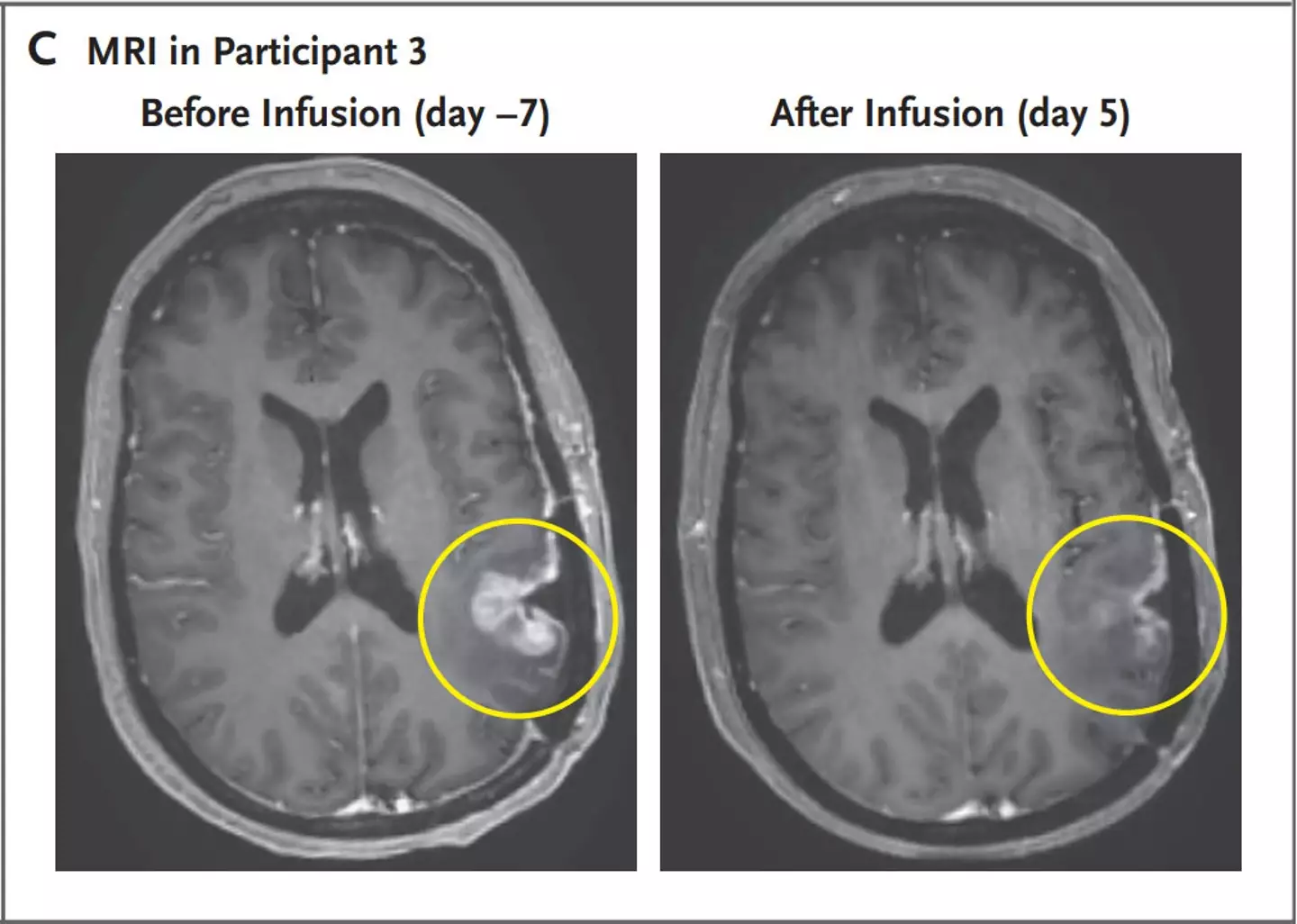In a medical breakthrough with enormous potential, a potent new immunotherapy has demonstrated the ability to dramatically shrink a highly aggressive brain tumor. While the long-term outcomes remain unknown, the groundbreaking trial offers much-needed hope in the fight against glioblastoma – a typically fatal form of brain cancer. This research was published in The New England Journal of Medicine.
Glioblastomas are notoriously aggressive cancers that arise from supporting cells in the brain. These tumors often spread rapidly and have a devastating prognosis. Up to 95% of patients succumb to the disease within five years of diagnosis.
CAR T-cell therapy for brain tumor
Researchers at Mass General Cancer Centre turned to an innovative cancer treatment known as CAR T-cell therapy. This promising approach involves extracting a patient’s immune cells (T-cells), genetically re-engineering them to recognize and attack cancer cells, and reintroducing them into the patient’s body. CAR T-cell therapy has shown tremendous success in treating blood cancers, and researchers hoped it could be similarly effective against glioblastomas.
A two-pronged attack: Targeting EGFR mutations
One challenge in treating glioblastomas lies in their heterogeneity – the tumors often have multiple disguises, making them difficult to target. Researchers overcame this by engineering the CAR T-cells to target a common mutation in a protein called the epidermal growth factor receptor (EGFR) and produce antibodies that seek out the non-mutated versions of EGFR. While not typically found in healthy brain cells, non-mutated EGFR is frequently expressed by glioblastoma cells.
The INCIPIENT trial
The INCIPIENT trial was a phase 1 study designed to test the safety and potential efficacy of this novel dual-targeting CAR T-cell therapy (named CARv3-TEAM-E) in three patients with EGFR-expressing glioblastoma. The 72-year-old male patient had undergone standard therapies, only to have his tumor return. MRI scans taken just a day after receiving the experimental treatment revealed a stunning surprise: his tumor had significantly shrunk. Unfortunately, the cancer rebounded several months later.

Similar results were observed in a 57-year-old female patient whose tumor initially regressed almost completely before returning a month after therapy. The third patient, also 72, experienced sustained tumor regression without recurrence, and the side effects of the therapy were generally mild.
Promising outlook
While it’s too early to declare CARv3-TEAM-E therapy a cure, the results provide compelling evidence that CAR T-cell therapy may offer a powerful new weapon in the battle against glioblastoma. The researchers concluded, “[Our] study … provides proof of principle that multiple surface antigens can be targeted simultaneously with the use of CAR T-cells and confirms that EGFR is a suitable immunotherapeutic target in glioblastoma.”
With further research and expanded trials, this pioneering therapy has the potential to offer much-needed hope to patients facing this devastating disease.












